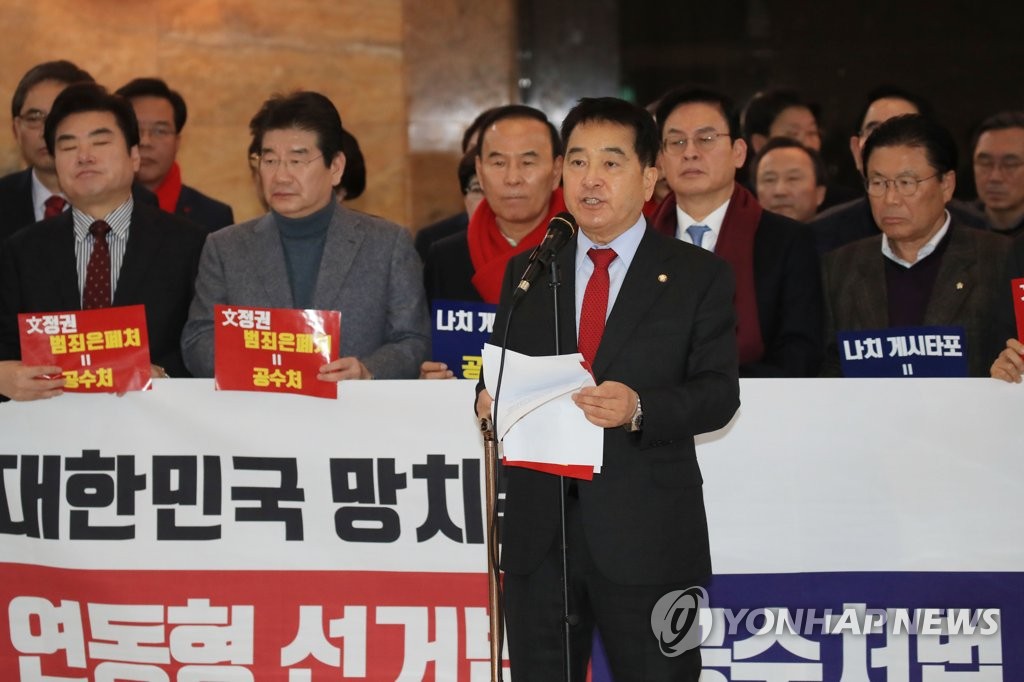- California Assembly OKs highest minimum wage in nation
- S. Korea unveils first graphic cigarette warnings
- US joins with South Korea, Japan in bid to deter North Korea
- LPGA golfer Chun In-gee finally back in action
- S. Korea won’t be top seed in final World Cup qualification round
- US men’s soccer misses 2nd straight Olympics
- US back on track in qualifying with 4-0 win over Guatemala
- High-intensity workout injuries spawn cottage industry
- CDC expands range of Zika mosquitoes into parts of Northeast
- Who knew? ‘The Walking Dead’ is helping families connect
Main opposition lawmakers vow to resign en masse following passage of prosecution reform bill
Lawmakers from South Korea’s main opposition party agreed Monday to resign en masse following the unilateral passage of a bill aimed at reforming the prosecution.
The Liberty Korea Party (LKP) reached the decision at a two hour-long meeting after the National Assembly passed a controversial bill that will allow the setting up of a separate unit to probe corruption by high-ranking public officials.
“Most LKP members couldn’t hold in their anger at the latest railroading of a bill following two previous bills that were rammed through the assembly,” the party’s floor leader, Rep. Shim Jae-chul, told reporters. The other bills are the 2020 national budget and changes to election laws. He said that such outrage allowed lawmakers to reach a consensus to give up their seats.
The party leadership will later decide on how to handle the resignations of the lawmakers, he said.
The establishment of the proposed corruption probe unit is aimed at overhauling the prosecution, one of the key election pledges by President Moon Jae-in.
Under the bill, the proposed unit will be created in July next year and will be empowered to investigate corruption committed by ranking public officials, including the president, lawmakers, top court justices and prosecutors. The agency will be able tp directly indict police, prosecutors and judges.
A seven-member committee to recommend the chief of the unit will be set up and the president will select one of two candidates who receive support from six panel members. A parliamentary confirmation hearing is needed for appointment.
The bill also obliges the prosecution to report to the proposed probe unit all of its information on suspected crimes by high-ranking officials under its investigation, in what critics have called a “poisonous” clause.

In this photo taken on Dec. 30, 2019, the main opposition Liberty Korea Party’s floor leader Rep. Shim Jae-chul (front) announces party members’ resolution to resign en masse in protest against the passage of the corruption probe unit bill aimed at reforming the prosecution at the National Assembly in Seoul. (Yonhap)












